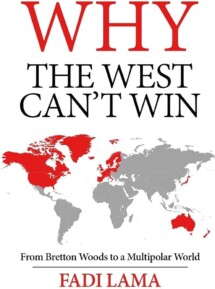German automotive industry at a crossroads
Kategoria: Business
Why do Americans keep putting a negative spin on things? Why are they so anxious about the future when the bad news is, according to the experts, clearly behind them? Why are they so worried about their financial condition when orders, profits, and share prices are booming? Why can’t they just accept what Wall Street and Washington keep telling them — that the recession is over?
Maybe it’s because conditions are nowhere near as great as politicians, economists, policymakers, Wall Street „strategists,” TV pundits, and other members of the rose-colored glasses set keep saying they are. If so, that probably explains why, according to the latest poll from Gallup, „One in Five Americans Fear Job Loss in Next 12 Months”:
If laid off, 44% could go barely a month before experiencing significant financial hardship
PRINCETON, NJ — Even as Gallup’s underemployment measure shows that more people are getting full-time jobs, 21% of American workers think it is „very” or „fairly” likely that they will lose their jobs or be laid off during the next 12 months. That is nearly twice the 12% pre-recession level of 2007 and about the same as the 19% recorded in late 1982, during another deep recession.
Further reflecting today’s lack of job security, 38% of Americans employed full- or part-time say they are „not at all likely” to lose their jobs over the next year — down 19 points from April 2007, and by far the lowest level of self-professed job security Gallup has measured since 1975.
Many Could Not Replace Their Current Jobs
American workers are not optimistic about replacing their current jobs if they are laid off: 42% say they would be „very” (16%) or „somewhat” (26%) likely to find another job „just as good as the one [they] have now.” This is down from 64% in April 2007 and 70% in April 2001.
Many Would Encounter Financial Hardship
Forty-four percent of employees say they could go up to a month after losing their job before experiencing significant financial hardship, and another 27% say they could last up to four months. This financial fragility is not much different than it was in April 2003 and February 2001, when 41% and 46%, respectively, said they could last up to a month.
Paycheck dependency is more prevalent in the South as well as among those who have a high school education or less and those who make less than $30,000 a year.




